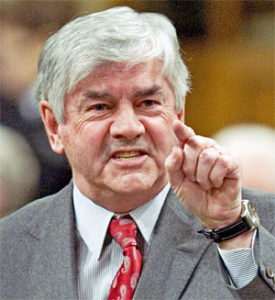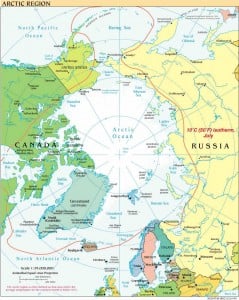Overview:
At the beginning of the year, the Arctic 5 were rolling out strategies to enhance their regional military power. Concerns over sovereignty weighed on the minds of policymakers, with Russia and Canada coming to diplomatic blows over the flights of Russian fighter jets a few hundred miles outside Canadian airspace. Yet aggression gave way to diplomacy, in part due to the economic benefits of cooperation rather than expensive armed conflict. Energy developments also dominated much of the news, with all five Arctic states hoping to profit from oil and gas drilling in the Arctic Circle. The U.S. Department of the Interior recently gave Shell the go-ahead to drill exploratory wells in the Chukchi Sea, while the Russian government sought foreign investors for natural gas projects in Yamal. Indigenous peoples made the news as well. The Inuit protested choices made by the state governments in Canada and the United States, whether over the naming of a passage or over drilling. Greenland voted for even greater autonomy from Denmark. The Nenets people in Russia found less success in making their voices heard, yet still drew headlines for their protests of gas development. Thus, events in 2009 once again proved that the Arctic, though inhospitable to most, is still home to thousands of people and pristine wildlife whose interests must be considered in deliberations over problems in the Arctic.
Person of the Year:

Foreign Minister Cannon.
Canadian Foreign Minister Lawrence Cannon, who this year uttered such famous quotes as, “[Canada] will not be bullied,” and “There is surprisingly little disagreement over land and sea claims in the Arctic region,” is the Arctic Blog’s person of the year. He vocalized Canada’s attempts at solidifying their Arctic sovereignty while trying to remain diplomatic.
Most Unexpected Event:
The finance ministers of the G7, frequent visitors of warm and tropical resort locations, announced that they will convene in Nunavut next February.
What to Watch for in 2010:
While at the beginning of 2009, military tensions were heating up between the Arctic states (particularly Canada and Russia), next year, we can expect to see the Arctic states attempt to resolve issues diplomatically. There may be some continued militarization efforts: Russia, for instance, is planning to begin construction of the first of its new icebreakers next year. Senate Bill 2840 regarding the construction of a deep water port in Alaska will also be debated early next year. But in keeping with the 2008 Illulissat Declaration, the Arctic 5 will probably try to work together amicably and bilaterally rather than through new multilateral institutions. If any states are to remain aggressive, however, the most likely candidate is Canada.

And lest we forget, expect to see more reports that the ice in the Arctic is melting. It wasn’t so long ago that scientists were predicting that the Arctic would be completely ice-free in the summer of 2010. While such a scenario is a long-shot, the ice cap will surely diminish ever further – opening up the possibility of new shipping routes, and consequently new tensions. Above all, melting ice reinforces the primacy of natural resources and economics in the Arctic: whether drilling for oil, mining Arctic gold, or levying taxes on cargo ships, the economic promises of the Arctic will drive countries away from militarized conflict and towards diplomacy in 2010.